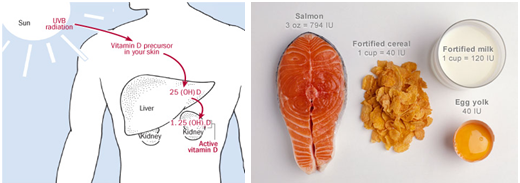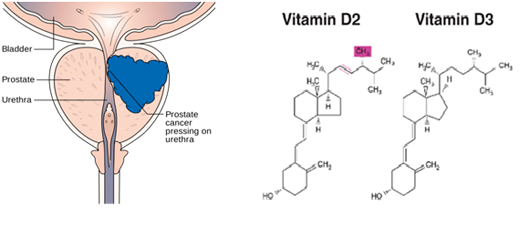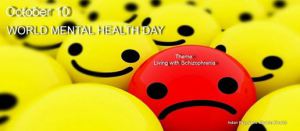
‘Living with Schizophrenia’
“On October 11, 1994, John Forbes Nash Jr.won the Nobel Prize for the pioneering works in game theory. Nash was 66 and most of his adult life he’d suffered from paranoid schizophrenia.
Nash began his Ph.D at Princeton in 1948- when he was just 20. He went on to MIT and for eight years dazzled the mathematical world. Then, disaster! Mental illness wrapped about him like an evil cloud. He began hearing voices. For 25 years, mental illness owned John Nash. He became a ghost, wandering the halls of Princeton and suffering in some private hospital. It was in mid 1980s that Nash at last learned to manage the demon and once again, he could do mathematics”.
World Mental Health Day is observed on 10th October every year, with the overall objective of raising awareness of mental health issues around the world and mobilizing efforts in support of mental health. The theme for 2014 is “Living with schizophrenia”. The focus of the World Health Organization will be living a healthy life with schizophrenia.
What is schizophrenia?
Schizophrenia is a severe form of mental illness affecting about 7 per thousand of the adult population, mostly in the age group 15-35 years. It affects about 24 million people worldwide. Schizophrenia affects men and women equally. It occurs at similar rates in all ethnic groups around the world. Symptoms such as hallucinations and delusions usually start between ages 16 and 30. Men tend to experience symptoms a little earlier than women. People with the disorder may hear voices other people don’t hear. They may believe other people are reading their minds, controlling their thoughts, or plotting to harm them. This can terrify people with the illness and make them withdrawn or extremely agitated.
Mental health – world scenario
It is estimated that approximately 450 million people worldwide have a mental health problem.( WHO 2001) One in four families worldwide is likely to have at least one member with a behavioural or mental disorder.CDC report :Mental illness surveillance among US adults shows, Mental illness is an important public health problem in itself- about 25% of US adults have a mental illness. The office for National Statistics Psychiatric Morbidity report found that in any one year 1 in 4 British adults experience at least one mental disorder and 1 in 6 experiences this at any given time. In United Arab Emirates, Neuropsychiatric disorders are estimated to contribute to 19.9% of global burden of disease (WHO, 2008).
Mental health scenario in UAE
Even when well standardized studies on mental health in UAE are scarce, the available old and new studies show alarming increase of mental health problems in this Middle Eastern country. Depressive disorders, addictive disorders, stress related disorders, anxiety disorders, childhood behavioural problems like ADHD are in the forefront along with other psychotic disorders like schizophrenia.
Living with schizophrenia
WHO aims at healthy living with schizophrenia for people who are inflicted with this disease and also for their caretakers. “Living with Schizophrenia” as a theme is the need of the hour. It is important because of the great burden imposed by schizophrenia on the family and on society as a whole but essentially on the patient him (her) self.
“Living with Schizophrenia” can be approached from many perspectives. Who are those who live with schizophrenia? It is basically the patients themselves. The experience is an intense, long-lasting and often unbearable pain coupled with a perception of social isolation produced by prejudice and discrimination. The relatives (the carers) also live with schizophrenia and such is also the case with the professionals, the advocates and society as a whole. WHO, this year aims at targeting a healthy life for schizophrenia patients, their care takers and society at large.
Challenges
Stigma, poor awareness, absence of proper screening, lack of insight & poor help seeking, acceptance problems in family and society, poor drug compliance, difficulties with reintegration of schizophrenic people back into society, inadequate funding, care centers and resource personals, huge financial expenses incurred on long term treatment and absent insurance schemes, inadequate mental health policies by the government are some of them.
Region specific challenges
The quantum and impact of mental health issues in these parts of world are not well studied. Available short and small studies show the prevalence and incidence of mental illness at par with rest of the world statistics. A study conducted in early 90s in Dubai by prof Rafia Gubash shows overall prevalence rate of psychiatric disorders as 22.7%,depressive disorders 13.7%, anxiety disorders 7.0 %, psychotic disorders 1.9%, which are in line with international rates. Outpatient and inpatient statistics in Mind wellness clinic at International modern hospital Dubai also shows similar numbers. WHO statistics 2011 shows in UAE – mental health professionals working in mental health sector, per 100,000 is for Psychiatrists 0.3,Nurses 2.12,Psychologists 0.51,social worker 0.25 and that of developed countries, like US and Australia-Psychiatrists(US-7.79,Aus-12.76)Nurse(US-3.07,Aus-69.54)psychologist(US-29.03,Aus-62.48).World health statistics 2014 shows UAE spends2.2% of its GDP on health while UK and USA spend 7.0%, 13.6% of their GDP respectively. When we talk about schizophrenia status DALY (Disability adjusted life years) in UAE is 267.316 against164.255 and 185.182 in Australia and UK respectively. Discrepancies between DALY rates and prevalence may arise from differences in availability of medical treatment: Years lived with mental disorders carry significantly higher DALY values when un-medicated than when medicated.
Challenges specific to this part of world regarding schizophrenia are; No mental health act, inadequate funding, no insurance coverage, non availability of adequate resource persons and appropriate treatment options like depot injections and ECT, absence of rehabilitation centers and shortage of standard studies on prevalence, incidence and other variable aspects of mental illness and finally poorly sensitized family members and society.
The impact of schizophrenia / mental illness
The impact of mental illness especially schizophrenia ranges from ostracisation, debts, social drift and shift, issues related to education , marriage, rehabilitation / social reintegration and depression, adjustment problems and burning out of care takers etc…
What can we do?
To make person’s life better is all about improving his quality of life .There is no absolutism in it, rather it is a continuum.30 yr old A.A, a young schizophrenic was found missing in Dubai in July this year, when he came out with his family. A Good Samaritan helped him to reunite with his family. We can do many things to make the life with schizophrenia better. Understand and accept the person with mental illness is the most important. This we can start from the family, then to the society and to the bigger society, our country. Yes all of us should change the attitude towards them. A good empathetic attitude will serve the purpose.
Drafting mental health policies and Act will help a lot to develop sensible and sensitive attitudes towards a biological disorder of the brain – mental illness. This will provide better treatment options and will help those with mental illness to lead a respectable life by enjoying their rights.
Developing or investing on better hospital / rehabilitation / care centers for behaviourally ill clients is the need of the hour. We have only very few such centers for inpatient treatment and rehabilitation. International modern hospital Dubai is one among the few. Government and private investors can look into such areas to ensure better health care delivery to these downtrodden people.
Changing the existing drug policies will help to make available the drugs fairly freely to those, who are in need. Most of the medications used by mental health professionals are Non addictive. Unfortunately most of them are put under controlled medicine group which make these medicine inaccessible to needy patients in the most needed time.
Mental illness is just like any other medical illness, it is a disorder of the brain. Here in UAE most of the treatment is covered under insurance, so it is not a big burden to a person or his family. Unfortunately mentally ill persons are getting the worst lot always. Neither the consultation nor medications are covered under most of the insurance for mental illness. Mental illness affects the performance of an employee in any organization just like any other medical illness. So ignoring these facts or denying the treatment rights for these persons will affect the prospect of the institution so also the prosperity of the country.
Ignorance, stigma, financial burden and inadequate time, all these factors might have contributed to the insensitivity of family members towards people with mental illness. Developing countries where there is better family ties reports better improvement rates with long lasting medical disorders like schizophrenia than developed countries with disintegrated family structure. Good sensible support from the family and society will reduce the burden of these disorders.
Spreading the awareness will help in early screening, early detection and early treatment seeking, which in turn ensures better improvement and lesser disabilities.
R.D. Laing’s words ring in my ears “Schizophrenia cannot be understood without understanding despair.”
Let this world mental health day give us a healthy mind to understand and participate in nation building process by maintaining a sensible empathetic attitudes towards mentally sick individuals like people with schizophrenia.
Dr.Shaju George
Specialist psychiatrist
International modern hospital
Mind Wellness Department
Burdubai,Dubai
Appointments : 971 4 406 3000






